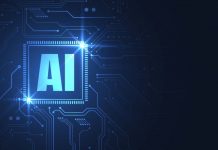This article has been written by Muskaan Khandelwal, pursuing a Remote freelancing and profile building program; and has been edited by Oishika Banerji (Team Lawsikho).
it has been published by Rachit Garg.
Table of Contents
Introduction
The title of this article is in itself calling out AI to be present which is waiting to be more developed in the future. The artificial intelligence of AI as is rightly called is the art of restoring human intelligence and behaviours via computers. Along with that it also trains computers to learn human behaviour and make human-like decisions. AI has attracted much attention from all industries, academia, and government. In the healthcare sector, scenarios evolve at a fast pace, like evolving breeds of viruses resulting in terrible infections. This ipso facto has been responsible for the evolution of pharmaceutical measures to counter such dreadful infections. Thus, AI has just begun to play a major role in the field of healthcare. A recent study by McKinsey has predicted healthcare in the top 5 industries involving AI as a crucial aspect in their working. Keeping in mind that there are many genres that the healthcare industry has not yet developed in relation to AI, this article is a small step providing such insight.
Present use of AI in healthcare
In the existing world, industrial and technological revolutions are accelerated by the global application of new-generation communication and information technologies like IoT (Internet of Things), AI, blockchain technology, and so on. There are a variety of dimensions in healthcare where AI is now emerging as a game changer. Here are some highlights of it:
- Discovering drugs: From analysing vast databases of information on existing medicines, AI-based solutions are being developed for the identification of new potential treatments and therapies. This would help in redesigning existing treatment structures, and medicines to overcome critical threats that have been coming into the picture since the last decade, like the Ebola virus and Coronavirus. AI would improvise the success rate and effectiveness of respective drug evolution and quicken the process of introducing new drugs in the market to counter these deadly diseases.
- Radiology: AI-based solutions are being developed to robotize image examination and diagnosis. This would help in highlighting the areas of attention in a body to the radiologist via a scan, and will also give high efficiency by avoiding any sort of human error. Recent inventions of tumour detection in a body via CTs and MRIs demonstrate the growth of new ways of cancer prevention. With the speed at which the evolution of AI is going on, radiology is growing simultaneously in other areas and is directly proportional to fast-growing computational and data power.
- Medication adherence: AI-based innovations aim to improve the interaction between the doctor/physician and patients, monitor medicine consumption and help in raising the adherence level resulting in improved clinical results and quality of life. Many AI-based applications have been created for smartphones that encourage adherence. These apps act as empowering agents for the patient and their family by offering quality checked relevant information about the disease, its side effects, treatments, precautions and so on. For self-managing chronic diseases like diabetes, and blood pressure, AI Robot assistants are gaining much popularity nowadays among diabetic patients.
- Infection rate prognosis: AI-based interventions have technology that can track the rate of virus spread, how it is likely to develop in future, identify high-risk patients, and develop real-time solutions for controlling it. This also reduces the workload of the healthcare workers and the risk to their life, especially in times of epidemics via quick detection of infection.
Challenges arising in healthcare due to AI
As we all know, to make an AI-based solution succeed, it acquires huge chunks of patient data to train and optimise the respective algorithm’s performance. But in healthcare, giving them access to these datasets to a machine can cause many issues:
a. As per healthcare laws, accessing the medical records of patients is strictly prohibited. As in past years, the entry of AI companies in the health sector led to huge data sharing between companies and hospitals. This is directly violating the patient’s right to privacy.
b. It is easy in other industries to get accurate and reliable data, easy to measure like to get car location and velocity in the automobile industry to predict traffic on highways. But in healthcare, the accuracy or measurability of data is not guaranteed. For instance, notes of a clinician in e-medical records can be unstructured and thus tough to interpret and process.
c. When a patient interacts with a doctor, there is trust between both, due to which the diagnosis conversation becomes easy and interactive. But doing the same with a machine can be complex, and trust and touch between a patient and doctor can be lost. So it would be difficult to adopt such advanced machines for patients and doctors.
Despite inventing such advanced technologies each coming month, developing an AI system which is not prone to fallacies is still a challenge. At the end of day, it is a machine which is created by humans so it can never replace humans because the biggest mystery of this universe is a human’s brain and nothing can match its multi-dimensional thinking and learning ability.
The future outlook of AI
For the coming few years, the worthwhile opportunities for AI in healthcare are hybrid models, where clinicians are given assistance for diagnosis, risk factor identification, and treatment planning but hold on to the final responsibility of patient care. This would help both patient and doctor to adopt these tools by analysing the risk involved, and it would be easy for healthcare experts to deliver operational efficiency and measurable progress in patient results. Keeping aside the above challenges, AI is occupying its place in this industry and soon become a support system for healthcare providers and will begin reducing their burden. AI is also becoming capable of diagnosing patients remotely who can’t afford to come to big hospitals. Extending the efficient medical facilities to backward areas would become easy. Future of AI in this industry looks promising, achievable and bright, so a lot is to be done in AI. The treatment through AI costs more, but as soon as it will comethe in form it will offer sophisticated, quick and efficient diagnoses. This would also make training of medical students easy and more interesting via naturalistic simulations that gives real-time feel, even the computer-driven algorithms can’t offer this.
Legal and ethical concerns regarding the use of AI in healthcare
It is ideal to note that the legal and ethical issues that stand in confrontation to society due to AI includes the following:
- Concerns surrounding privacy and surveillance,
- Bias or discrimination, and
- The role of human judgement in the era of AI.
Data breaches are on rise owing to the introduction of newer digital technologies in the everyday living aspects. It is noteworthy to mention that any kind of mistake in the field of healthcare on grounds of procedural or regulation casualness, can have devastating and life-threatening effects on the individual whose data has been ripped off. As patients come into contact with physicians at vulnerable moments, it is crucial that their privacy in terms of both information provided by them and that collected about them through inputs, must be taken care of. As we are aware of the fact that presently, there lies no well-defined rules or regulations that per se governs usage of AI in the healthcare industry, worries are on a rise concerning the same therefore.
Global legislations concerning AI in healthcare
An overview of a few global regulations concerning AI in healthcare have been briefly provided with an insight hereunder:
European Union
A research that was commissioned and supervised by the policy department for “Citizens’ Rights and Constitutional Affairs” in response to a request from the European Parliament’s Committee On Legal Affairs, formed the basis of the Resolution of the European Parliament. The report had put emphasis on the need for creating a legislative instrument that will govern robots and AI who are capable of adapting to any scientific breakthroughs. The report has been significant in highlighting the activities that AI can take up so as to jeopardise fundamental rights of citizens’ thereby putting them in a vulnerable situation.
The United States of America
Put simply, there is no comprehensive federal legislation on AI in the United States. In that place, there is a pathwork of some inter-connected AI regulations and regulatory framework. It is expected that in 2023, the USA will come up with robust legislation governing AI in healthcare. It is ideal to state that the US Food and Drug Administration (FDA) had published a regulatory framework for AI applications in medicine in April 2019, followed by an action plan in January 2021.
China
It is interesting to note that the term ‘digital health’ is not recognised by any laws and regulations functioning in the People’s Republic of China. But, the government has rightly come up with several healthcare regulatory schemes in relation to digital health such as Regulation on the Administration of Medical Information, Administrative measures for Internet Hospitals, etc.
India
Although India continues to be a subject of cyber threats and privacy breaches in healthcare and all other digital aspects, it is the very Constitution of the democratic nation that has recognised privacy as a fundamental right under Part III, enshrined in Article 21. But, the country awaits the arrival of the new sunrise in terms of data privacy and protection laws while it slugs with its two decades old IT law, the Information Technology Act, 2000.
Conclusion
With abundant issues to counter, guided by well-documented elements such as increasing chronic diseases, ageing population, etc. the requirements for bringing new and innovative solutions in healthcare is clear. AI-based solutions have directed small steps towards resolving key problems, but still have too much to achieve to create a meaningful impact on the healthcare industry globally, despite the media attention it owes. If the upcoming severe challenges of the healthcare industry would be countered successfully via AI, then it could have a major impact on this industry whether in terms of augmenting resources, ensuring patient outcomes, or future operations.
References
https://www.ncbi.nlm.nih.gov/pmc/articles/PMC7640807/
https://www.ncbi.nlm.nih.gov/pmc/articles/PMC6268174/
Students of Lawsikho courses regularly produce writing assignments and work on practical exercises as a part of their coursework and develop themselves in real-life practical skills.
LawSikho has created a telegram group for exchanging legal knowledge, referrals, and various opportunities. You can click on this link and join:
Follow us on Instagram and subscribe to our YouTube channel for more amazing legal content.
 Serato DJ Crack 2025Serato DJ PRO Crack
Serato DJ Crack 2025Serato DJ PRO Crack










 Allow notifications
Allow notifications


